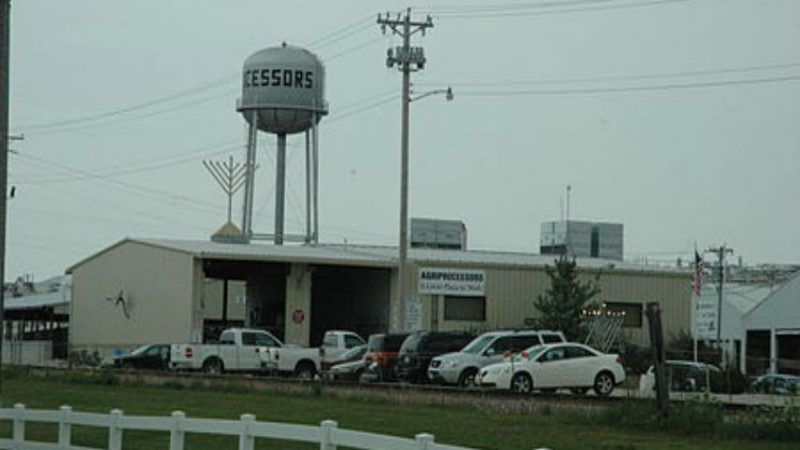Trump Commutes His First Prison Sentence
Kosher meatpacking magnate Sholom Rubashkin's prosecution and sentence had long generated cross-partisan outrage.

President Donald Trump announced his first sentence commutation yesterday. The beneficiary is Sholom Rubashkin, who was eight years into serving a 27-year sentence and $27 million in fines for financial crimes related to his work running what had been America's biggest kosher meat-processing concern, Agriprocessors.

As the official White House announcement notes, justice for Rubashkin, now 57 years old, had been a cause for "bipartisan leaders from across the political spectrum, from Nancy Pelosi to Orrin Hatch." Rubashkin's supporters also included more than 100 highly placed members of the legal community, from the Department of Justice to judges and scholars. This action is not a pardon: As the White House notes, it "does not vacate Mr. Rubashkin's conviction, and it leaves in place a term of supervised release and a substantial restitution obligation."
Rubashkin's sentence was widely believed to be absurdly excessive in relation to the crimes for which he was sentenced, and in relation to other crimes that are almost never so severely punished. As his lawyers noted,
Essentially, Mr. Rubashkin was convicted of fraud offenses stemming from inflating collateral to obtain a higher line of credit for Agriprocessors, his father's kosher meat business, and for paying some cattle owners 11 days late…Mr. Rubashkin is a devoted husband and father, a deeply religious man who simply doesn't deserve a sentence of this length, or anything remotely close to it…Indeed, his sentence is far longer than the median sentences for murder, kidnapping, sexual abuse, child pornography and numerous other offenses exponentially more serious than his.
As I blogged back in 2010, there was a lot to condemn about how the justice system treated Rubashkin. Interestingly, given Trump's anti-illegal-immigrant stances, Rubashkin's legal troubles began with an immigration raid on his meat-processing plant back in 2008.
The original raid, which arrested 389 workers, was conducted with a Blackhawk helicopter and submachine-gun-bearing armies of cops, even though Rubashkin was well aware they were coming to investigate his business. But what he was eventually imprisoned for had nothing to do with immigration violations; they resulted from financial-law fishing expeditions and some little-enforced technicalities, including a 1920s law requiring certain suppliers of cattle to be paid within a day.
Rubashkin had gone all the way to the Supreme Court, failing every step of the way, in search of a new trial or sentence.
The American Spectator convincingly lays out the government's malicious mishandling of the case once Rubashkin was in its clutches, including that the federal judge who sent him away, Linda Reade, "met with prosecutors secretly for months before the raid" and "met with federal agents to discuss 'charging strategies, numbers of anticipated arrests and prosecutions, logistics, the movement of detainees, and other issues.'…Documents indicate that the judge required a written briefing of the raid which was planned 'in coordination' with her. She actually had 'a weekly operations/planning meeting' with federal agents and the U.S. attorney. This collusion is an extraordinary conflict of interest."
The Spectator goes on to report that Rubashkin was acquitted on various state charges that were not tried by Reade. He even had the entire state case against him expunged from the record. The immigration charges were eventually dropped, leaving just the financial crimes.
Last year in The Wall Street Journal, a former deputy attorney general, Charles Renfrew, and a former U.S. attorney from Iowa, James Reynolds, wrote that Rubushkin's entire prosecution was a miscarriage of justice. The government's own actions, they argued, prevented Agriprocessors from being sold at sufficient value to repay the bank he was accused of defrauding, thus maximizing the alleged damage to the bank for which Rubushkin could be punished.
The government's war on his company harmed not only Rubashkin, but caused long-lasting damage to the economy of Agriprocessors' home town of Postville, Iowa. Trump should be commended for his commutation, and should remember the evils that can result from overzealous enforcement of immigration laws against people working peacefully to keep America's economy humming.


Show Comments (41)